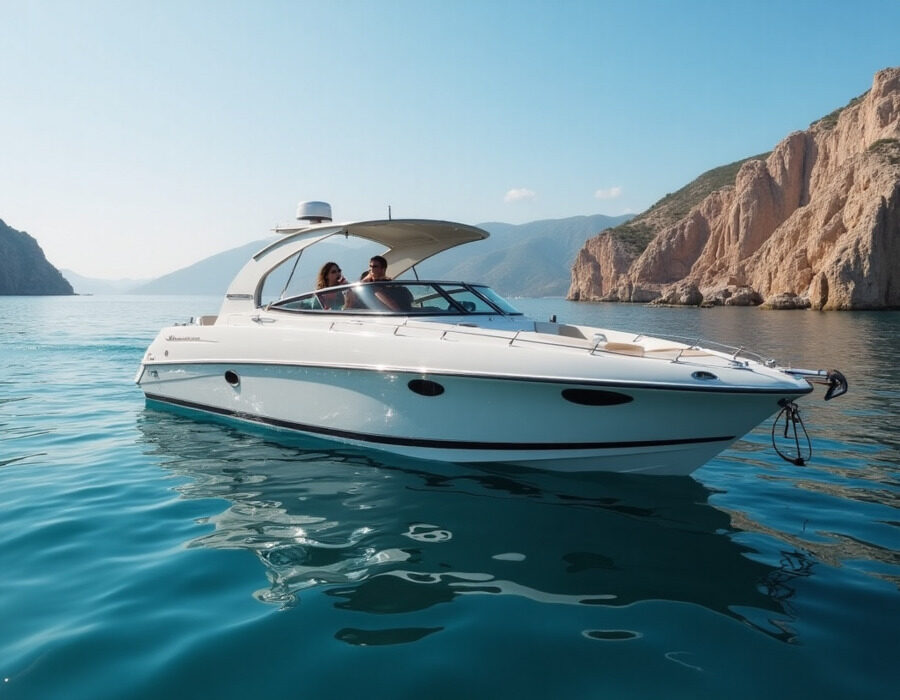<> Viral of Today <>
Home » Spain Travel News » The Balearic Islands Sound the Alarm for International Tourists as Surging Unlicensed Boat Rentals Jeopardize Marine Safety and Ecological Balance Monday, June 9, 2025The Balearic Islands have issued a serious warning to international tourists amid a surge in unlicensed boat rentals that are putting both visitor safety and the region’s delicate marine ecosystems at risk. Authorities are increasingly alarmed by the rise of informal vessel hires, often arranged through digital platforms without proper oversight or maritime training. This unchecked activity is leading to overcrowded marinas, navigation hazards, and increased pollution in protected coastal waters. In response, the regional government is preparing to implement strict new regulations to curb illegal rentals, preserve ecological balance, and uphold safety standards for all maritime tourism in the islands.The turquoise waters of the Balearic Islands have long attracted sunseekers, sailors, and partygoers from around the world. With their idyllic beaches, lively marinas, and Mediterranean charm, destinations like Ibiza, Majorca, and Menorca have become synonymous with luxury and leisure. But beneath the surface of this picturesque paradise, a new wave of concern is rising—one that pits private enterprise against maritime regulation.Starting in 2025, the government of the Balearic Islands is expected to introduce sweeping new regulations that will effectively ban the short-term rental of private boats by individuals not operating under licensed charter businesses. This decision comes amid a surge in peer-to-peer boat rentals, where private owners offer their vessels for hire—often via informal digital platforms—mirroring the rise of Airbnb-style home rentals in the housing sector.The current practice allows private boat owners to rent their vessels to tourists for daily rates ranging from three hundred to fifteen hundred euros, depending on the size and amenities. Until recently, this was a niche side hustle for a limited few. But in January 2024, a decree passed by the Spanish national government relaxed the requirements for operating certain recreational vessels, particularly small motorboats and sailing yachts within a specific size and range. The updated law removed the need for professional maritime licenses, provided that operators stay within two nautical miles of their departure point.The deregulation was initially welcomed by the public and tourism operators, who viewed it as a democratization of maritime access. However, unintended consequences quickly surfaced. With barriers to entry eliminated, an increasing number of private boat owners began leveraging their vessels for profit, contributing to a flood of informal rentals during the high season.Tour boat operators throughout the Balearic Islands quickly began experiencing the consequences.According to local operators, the volume of rental inquiries from individual owners looking to monetize their boats has grown exponentially, clogging marina availability and straining already limited docking infrastructure. This surge has alarmed authorities and industry professionals alike, prompting urgent calls for regulation.In response, the regional government has signaled its intent to prohibit private individuals from renting out boats unless they meet strict conditions, including licensed operation, registered embarkation and disembarkation points, and adherence to maritime safety codes. Boats that lack official boarding zones or fall outside the scope of professional oversight will not be permitted for charter use under the new rules.Toni Mercant, the Balearic Islands’ Director General for Maritime Transport, has been vocal about the growing risks posed by unregulated boat rentals. In a recent statement, he warned that existing loopholes in Spanish maritime legislation “invite speculation and exploitation of the public maritime domain,” particularly by individuals who view their boats primarily as revenue-generating assets rather than personal watercraft for leisure.Mercant and other officials argue that this trend not only poses safety risks—since many renters may not have formal training in navigation or emergency response—but also strains local marine ecosystems. Popular coastal zones and coves have experienced increased traffic, anchoring congestion, and pollution, with negative consequences for the fragile marine environment.The impending ban is expected to restore a balance between commercial maritime operations and sustainable tourism management. It also reflects a broader trend across Europe, where local governments are increasingly taking action against the unintended side effects of platform-driven rental models. Much like how short-term housing rentals have transformed urban neighborhoods and strained housing markets, the unregulated boat hire boom is now being blamed for disrupting the maritime economy and jeopardizing safety.Critics of the new regulation argue that it may disproportionately affect small-scale boat owners who rely on occasional rentals to maintain their vessels. Some fear that it will consolidate power in the hands of large charter companies and restrict access to boating experiences for average tourists.However, the regional authorities remain firm. From their perspective, imposing regulations on maritime tourism is essential not just to uphold safety and industry standards, but also to safeguard the fragile marine environments surrounding the Balearic coastline for future generations. With marine tourism continuing to expand, and climate pressures increasing, unchecked growth is no longer seen as sustainable.The Balearic Islands are warning tourists about the growing dangers of unlicensed boat rentals, which are threatening marine safety and damaging fragile coastal ecosystems. Strict new regulations are being introduced to restore order and protect the environment.As 2025 approaches, the Balearic Islands are setting a precedent that could reshape the future of leisure boating across the Mediterranean. Whether other coastal regions in Spain or Europe follow suit remains to be seen—but one thing is certain: the tides of maritime tourism are turning, and regulation is coming aboard.
This information will surprise you!
See also
- Read until the end to discover everything.
- Important information you need to know.
- Interesting facts and helpful tips.
Conclusion
Did you enjoy the news? Keep following us daily!

